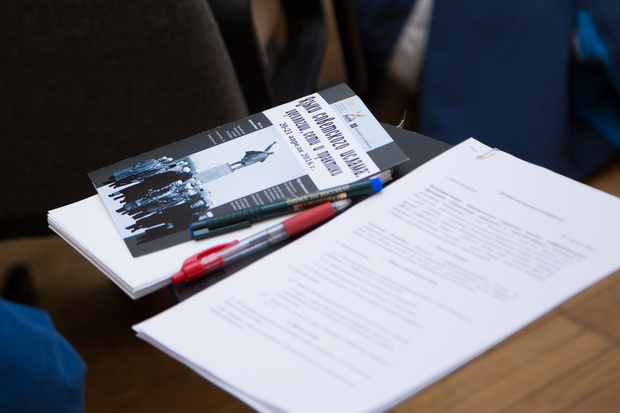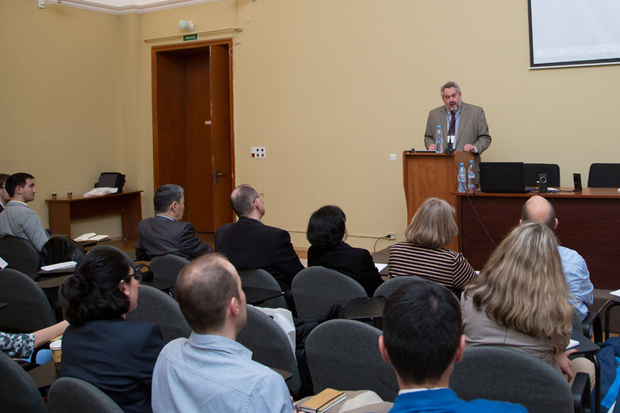'Muftiates by the end of the Soviet era were more like Church rather than Islamic institutions’
‘The languages of Soviet Islam’: the conference on the religion in an atheistic society
How did Muslim religion exist in the condition of its actual prohibition for 70 Soviet years? St. Petersburg has hosted the international scientific forum 'Languages of Soviet Islam: ideology, networks and practices'. One of the scientists who took part in the organization of the conference, the columnist of Realnoe Vremya Alfrid Bustanov specially for our newspaper expressed his thoughts on the results of this forum.
The memory of the Soviet
Cool summer night I was having dinner in the society of young Muslims in one of the Kazan cafes. My interlocutors asked what I do now, and I shared my thoughts on the fate of Islamic clergy during the Soviet era. Then suddenly one of them hurried to leave and in farewell said: 'We know everything about them: they told in mosques what they were ordered by KGB, and did not allow Islam growing'.
This anecdote shows that today the Soviet is perceived among contemporary Muslims as the subject of judgments, the source of legitimacy and the construction of a new identity.
In my previous article, I wrote about the politics of memory and that it is impossible to think about something neutrally. The Soviet past, despite the increasing temporal distance, does not leave us, penetrates in the contemporary linguistic and political practices. The science also does not step aside: the academic format is often used to justify a certain position towards the Soviet past. Therefore, to understand the landscape of diverse interests and subjectivities, it is necessary to reflect constantly on the role of a researcher in the study and the construction of memory about the Soviet past.

The course on international cooperation
Our conference 'Languages of Soviet Islam: ideology, networks and practices', held on 20-21 April at the European University in St. Petersburg, was devoted to the phenomenon of the development of religion in an atheistic society. Its programme you can see here. This scientific event became possible due to the close cooperation with the Amsterdam University and the support of TAIF company. I must say that our professors managed to establish fruitful collaboration with Dutch colleagues: a year ago, we held a joint session at the Oriental Department of St. Petersburg State University, a major conference on the history of the Golden Horde and started a new book series in the publishing house of the University of Amsterdam.
Devin DeWeese from the Indiana University, Bloomington, made a plenary report. He is a recognized expert on the history of Islamic civilization in Central Eurasia. His classic monograph about the Islamization in the Golden Horde has had a great influence on the contemporary ideas of religious traditions in the nomadic societies. Devin DeWeese is the author of several important publications on Sufism and historiography of Islam in the Soviet Union. Recently, together with Paolo Sartori and Jeff Eden, the Professor DeWeese published a volume of articles on Islamic modernism.
Among the speakers at the conference there were experienced colleagues from Europe, the USA and Near abroad, as well as young researchers working on their theses. In addition to the participants, we were pleased to see many guests from Germany, Kazakhstan, France and many cities of Russia, who came specially to listen to our speakers. For two days, our conference became a forum for the discussion of how to study Islam in the Soviet context.

So, did Islam exist or not?
Not all conferences of Islamic scholars end with a dispute about whether there was something Islamic/religious in the studied society. In fact, the Soviet language has penetrated deeply into the worldview of Muslims, and by the beginning of perestroika the Soviet muftiate used the terms, concepts and institutions, which had little in common with traditional Islamic. You can even build a line of gradual bureaucratization and governmentalization of the language of Soviet Muslims. As a prominent orientalist Bakhtiyar Babadjanov noted at the conference, the muftiates by the end of the Soviet era became more like Church than Islamic institutions. This trend can be deduced beyond own Soviet era and be observed firsthand today.
On the other hand, the myth about the total transition of the Muslim peoples of Russia to the Cyrillic alphabet in the 1930s and the complete disappearance of the 'high' Islamic literature in the Soviet Union has little in common with the reality. Soviet translations of the Quran in national languages and the commentaries to them are still waiting for their researchers, as well as thousands of pages of weekly sermons, private correspondence and family photo albums. In my opinion, all these sources clearly show the complex process of the construction of a Soviet person, for whom Islam was an integral part of life, but represented in different ways at different times.
Soon, a curious reader will be able to see the range of opinions on religion in the Soviet Union — we are planning to publish a volume of articles in Russian language, reflecting the contemporary debates within the scientific industry.
Reference
Alfrid Bustanov — Professor of TAIF company on the history of Islamic peoples of Russia, European University at St. Petersburg.
- Scientific degree: Ph.D., the University of Amsterdam.
- Research interests: history of Islam in Northern Eurasia, Oriental studies in Russia and the Soviet Union, Tatar History and Literature.
- Graduated with honours from Omsk State University named after F. M. Dostoevsky (the Department of History) in 2009 and postgraduate studies at the Department of Eastern Studies at the University of Amsterdam in 2013
- The author of five monographs in Russian, Tatar and English languages and about 40 scientific articles.